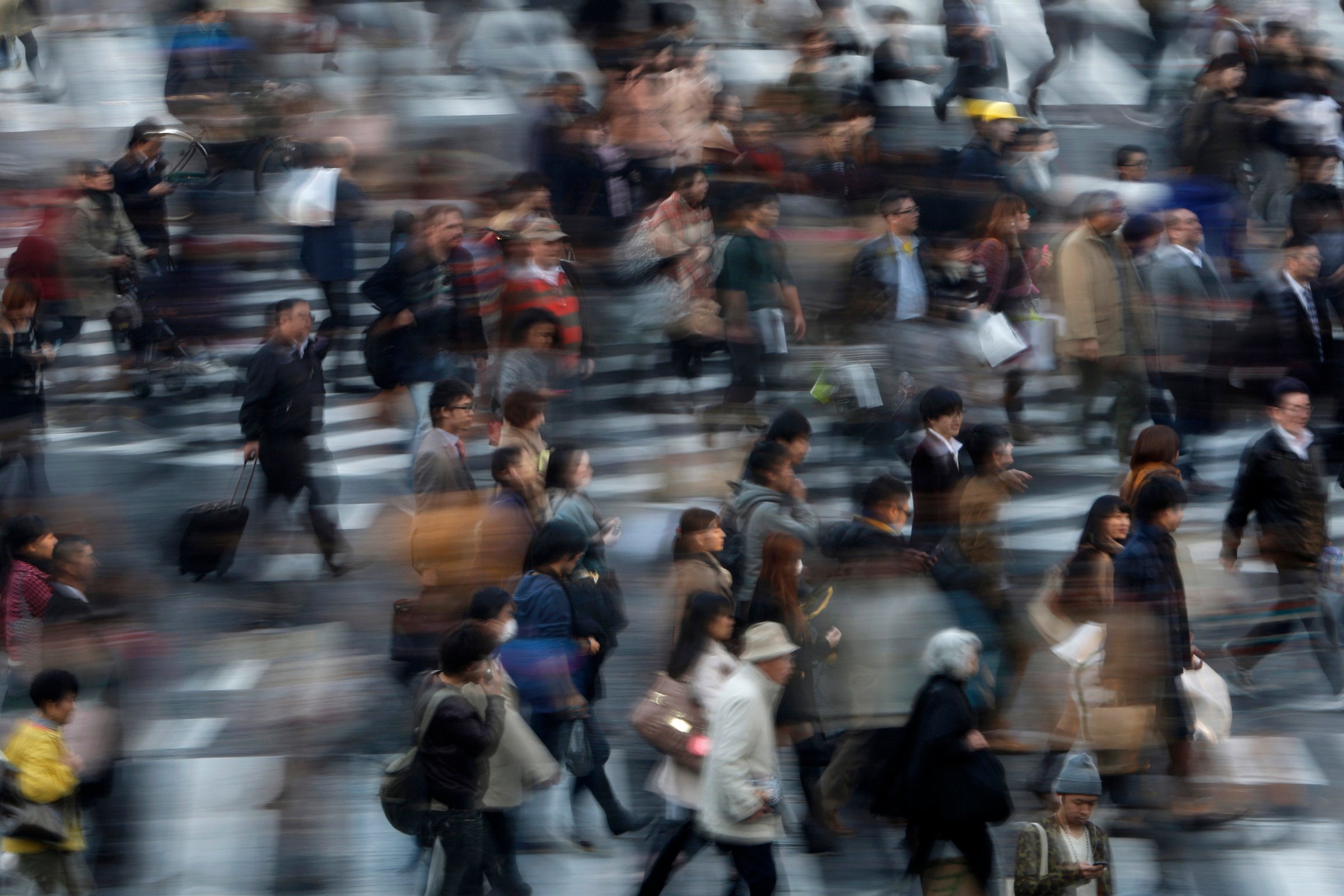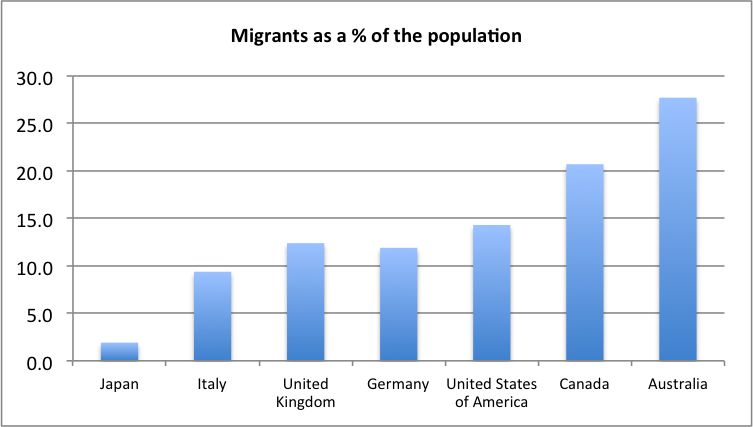
Japan’s battle against gray hairs took an unusual turn this week when the Ministry of Commerce set the very lowest acceptable bound for its aging population: 100 million people. Beyond this point, there lays a “crisis.”
Or so warned Akio Mimura, head of Japan’s Chamber of Commerce and Industry. Mimura urged the government to make 100 million the official population target, backed by policies that would promote childrearing. “If we don’t do anything, an extremely difficult future will be waiting for us,” Mimura said.
His concerns are well founded. Japan has one of the lowest fertility rates in the world, with each woman bearing an average of 1.4 children. At that rate, demographers project a plunge from 127 million people today to 87 million by 2060, sapping the workforce of its vital young workers and putting an enormous strain on state finances.
The shrinkage has already begun. In 2013, Japan’s population declined by a record-breaking 244,000 people.
All of which has led to some rather creative policy proposals from the Chamber of Commerce, such as retaining 70-year-old’s in the workforce, doubling government expenditures on childcare and encouraging men to ask working women out on a date.
But once again, policymakers dodged the quickest fix, namely to import workers from abroad. The island nation has an outstandingly small number of immigrants. They form less than 2% of the population, compared with a wealthy country average of 11%. Japan could triple the number of foreigners and still not approach the norm among wealthy nations.

Of course there’s a reason for policymakers’ skittishness around the issue. Immigration reform consistently takes a beating at the polls. One recent survey by Asahi Shimbun newspaper asked respondents if they would accept more immigrants to preserve “economic vitality.” Even with the positive spin, 65% opposed.
Japan Immigration Bureau’s motto is, “internationalization in compliance with the rules.” A simple rule rewrite could alleviate Japan’s demographic fix. It certainly would be easier than prodding the nation’s families to have another 13 million babies. But judging from this week’s presentation from the Chamber of Commerce, it remains politically stillborn.
More Must-Reads from TIME
- Cybersecurity Experts Are Sounding the Alarm on DOGE
- Meet the 2025 Women of the Year
- The Harsh Truth About Disability Inclusion
- Why Do More Young Adults Have Cancer?
- Colman Domingo Leads With Radical Love
- How to Get Better at Doing Things Alone
- Michelle Zauner Stares Down the Darkness
Contact us at letters@time.com